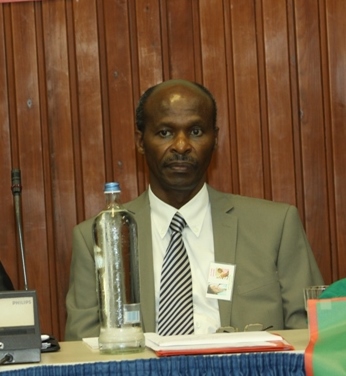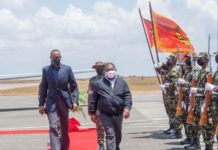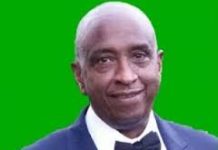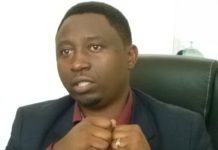Press release N° 003/2015
The Rwandan opposition political platform, composed of political organisations Amahoro PC, FDU – Inkingi, PDP – Imanzi, PS – Imberakuri and the Rwanda National Congress – RNC has learnt that the 11th European Union – African Union Human Rights Dialogue will take place on 24 November in Kigali. It is taking place at a crucial point in the political development of Rwanda. This meeting will be an acid test of the serious commitment of EU and AU to the universality of human rights, democracy and the rule of law.
Our political organisations are made up of people who have lived and worked in Rwanda all their lives but are now refugees, former refugees who are now refugees again, survivors of genocide and those who never left Rwanda and are living under the repressive regime of RPF.
The platform is of the view that this is a great opportunity for the European Union and _ African Union to show to Rwandans that they are not partisan by asking the ruling party RPF to abandon its project of changing the constitution in order to allow Paul Kagame to be President for 34 years (2000- 2034). We would like to recall that during the 6 years (1994-2000) that he was Vice President and Minister of Defence, he was the real power behind the scenes.
A failure to oppose this manipulation of the Constitution while exerting pressure on other neighbouring countries of Burundi and the Democratic Republic of Congo would be creating a bad precedent of double standards in the region but more especially creating the necessary conditions for another cycle of political violence in Rwanda. As President Paul Kagame himself noted in his address to the meeting of the UN General Assembly on the 25th September 2012,: “ Rwanda has firsthand experience with how important the rule of law is and more specifically, the implication of its absence or disregard, and unequal application. That absence destroyed our country in the post-independence decades leading up to the Genocide in 1994”.
It is the very considered view of the Rwandan political opposition that the cycle of political violence in Rwanda is not due to congenital enmity between Hutu and Tutsi but due to political and social exclusion as well as violation of human rights which served political elites to galvanise the people around these grievances in order to get access to power. External factors, including the external support or turning a blind eye to repressive regimes exacerbated the conditions for social revolt. These conditions of political and social exclusion are prevailing in Rwanda now. Article 101 of the 2003 Constitution had been designed to stop any temptation for leaders to stick to power and hence avoid violent change. It clearly stipulated that: “Under no circumstances shall a person hold the office of President of Republic for more than two terms”.
The ruling Party RPF has broken all the book rules relating to democratic governance and respect of human, civil and political rights including: closing the political space, arresting, detaining or forcing into exile critics of the government i.e. Mrs Victoire Ingabire Umuhoza, Deo Mushayidi, Me Bernard Ntaganda, Sylvain Sibomana 2 etc. and even hunting down critics abroad to assassinate them i.e. General Kayumba Nyamwasa, two foiled assassination attempts in London.
The President is on record, telling a prayer breakfast meeting in January 2014 that his officials should not be apologetic about the strangling of his former chief spy Colonel Karegeya in a hotel in South Africa or encouraging extra judicial executions by a telling a public rally on the 5th of June 2014, that he would order his secret agents to shoot in broad day light anyone threatening his regime.
Freedom House (2015) ranks Rwanda as a no free country. The ranking 2015 in terms of press freedom by Reports without borders puts Rwanda at n° 161 out of 180 countries, below Afghanistan (122); Iraq (156) Palestine (140) even Burundi (145) and South Soudan (125) or Sierra Leone (79) and Liberia (89) that have known brutal civil wars.
All international human rights group noted numerous instances of torture, ill-treatment, and enforced disappearances in secret detention centres at the hands of Rwanda’s military intelligence. US State Department has made the same observations.
The UN special rapporteur Maina Kiai in his report to the General Assembly in June 2014, noted with concern that “a society without room for critical voices to speak freely and peacefully is unsustainable”.
We hope that EU – AU will not fail Rwanda again and will this time act in time to pre-empt any future political violence in Rwanda. There are enough social, political and external pressures that can push the country over the edge into another abyss.
Date : 14th November 2015.
For contact
Joseph Bukeye
Chair Platform
[email protected]
Tel: +32-478973762
































































